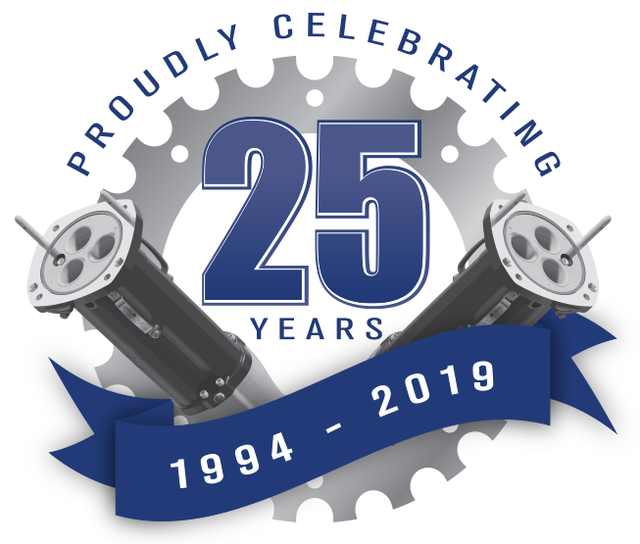LEGAL
International arbitration: the key themes leading to mining disputes
Mining projects present a cluster of risks, with many sources of potential disputes between miners, their partners and host nations. Chris Lo asks, what are some of the leading drivers of international arbitration proceedings in the mining industry?


Every company keeps a sharp eye on the risks to which their operations are exposed, and in the mining industry, there’s no shortage of potential pitfalls for the unwary explorer or producer. With blockbuster deposits dwindling in many key metals, miners are being forced to look further afield for new international opportunities.
Mining firms’ reliance on the long-term cooperation of the host nations in which they are investing, not to mention the remote locations and complex supply chains that come with most mineral exploration and production projects, creates a cluster of risks.
Many of these risks are difficult to predict and must be covered comprehensively in treaty or contractual negotiations between mining investors and host nations (or between private parties, in the case of commercial contracts or offtake agreements). This is especially the case in mining, among other sectors, because the capital-intensive nature of the business often requires large expenditures long before a mine starts producing, leaving mining companies at risk of losing investments already sunk into a venture if the deal later turns sour.
As such, many treaty agreements include stabilisation clauses to mitigate this uncertainty by, for example, freezing a regulatory framework for a project so the rules in place at the time of the contract’s signing will continue to apply, or allowing for contract renegotiation if new regulations are introduced.
Nevertheless, disputes of various kinds are still regular occurrences in the complex business of mining, and the resource sector has been a prominent and growing user of international arbitration processes to resolve transnational disagreements. Leading international arbitration institutions include the World Bank’s International Centre for Settlement of Investment Disputes (ICSID), the London Court of International Arbitration (LCIA) and the International Chamber of Commerce (ICC).
Arbitration has proven popular among miners as a last resort because of its relative flexibility as a means of dispute resolution with a binding outcome, and the legal recognition of awards from these cases in the courts of most countries around the world.
“No other dispute resolution process can offer anything close to this level of coverage or portability of outcome,” wrote Sam Luttrell and Amanda Murphy of global law firm Clifford Chance in The Guide to Mining Arbitrations, published in June 2019 by Global Arbitration Review. “An international arbitration clause therefore gives a cross-border contract ‘teeth’ in a way no other clause can.”
But what are the leading issues that cause parties to seek resolution through international arbitration?
More than half of the country’s coal mines are managed by pro-Russian separatist militia.Credit: DmyTo/Shutterstock.
More than half of the country’s coal mines are managed by pro-Russian separatist militia.
Credit: DmyTo/Shutterstock.
Political risk: resource nationalism and expropriation
Given the tight interconnection between mining companies and host states (or state-owned mining firms), it’s unsurprising that unexpected changes in regulation or political goodwill represent an all-important risk for companies developing mineral projects.
“The key concerns we are hearing about from a disputes perspective centre around regulatory and political risk,” Faegre Drinker partner Adrian Jones told Mining Technology in a recent interview.
While regulatory or political disputes can crop up in a range of contexts, for the mining sector these risks often stem from the concept of ‘resource nationalism’, or the trend for certain resource-rich developing countries to renege on treaty obligations or even expropriate private mining projects if the government deems that an insufficient share of a project’s benefits are being shared with the state or local populations.
Examples of arbitral awards based on allegedly unlawful expropriation of mining assets include a case between Khan Resources and Mongolia, which concluded in 2015 and ordered the government to pay the company $80m after the country’s Nuclear Energy Agency invalidated the licenses for a uranium exploration and production project in the province of Dornod.
“The key concerns we are hearing about from a disputes perspective centre around regulatory and political risk.”
The upper ranges of arbitral awards for unlawful expropriation have apparently not yet been reached, if an ICSID tribunal’s $5.8bn ruling against Pakistan in December 2019 is anything to go by. The award was made in favour of Australian joint venture Tethyan Copper after the province of Balochistan rejected Tethyan’s mining licence application to develop gold and copper deposits, despite the company exploring the area in partnership with the province.
Actually enforcing such a large award may not be practical, however, as Pakistan in January this year submitted a brief to the US District Court of Columbia that the award should not be enforced, on the grounds that the ruling against it was flawed and that the payment – equal to 40% of Pakistan’s liquid foreign reserves, the brief pointed out – would be economically devastating for the country.
Africa has long been a focal point for the discussion around resource nationalism, and some governments on the continent continue to be a driver for arbitration proceedings related to expropriation and the revoking of licences, from the breakdown of Tanzania’s relationship with Barrick subsidiary Acacia Mining to the ongoing case between a subsidiary of metals trader Gerald Group and Sierra Leone, which cancelled the licence for the company’s Marampa iron ore project in October.

AusProof is celebrating 25 years of business in Australia in 2019.
Stand-offs over social and environmental concerns
Respect for the local environment and communities is a vital component of miners’ social licence to operate in any country, and a significant source of tension in many cases. While environmental campaigners and community groups aren’t direct signatories of a mining investment treaty, accusations of environmental breaches or violations of indigenous rights certainly drive arbitration proceedings.
In May 2019, Ottawa-based campaign group and mining industry watchdog MiningWatch Canada published a report analysing the 38 known mining arbitration cases in Latin America over the last 20 years, and found that a third were related to indigenous rights and community consent, while more than half of the cases disputed actions taken for environmental or health reasons.
The report calculated that “Colombia currently faces over $18bn dollars in threatened or pending suits, especially related to protecting indigenous territory and fragile páramo ecosystems, which provide water to over a million people”, while Mexico and Uruguay each had more than $3bn in suits related to environmental regulations.
“Colombia currently faces over $18bn dollars in threatened or pending suits.”
The report highlighted the case of Goldcorp’s Marlin gold mine in Guatemala, where the threat of an arbitration claim from Goldcorp was enough to dissuade the government from heeding calls to close the mine over alleged environmental and social impacts. MarketWatch argued that the international arbitration process makes developing countries vulnerable to bad-faith lawsuits from mining investors.
“Canadian companies make up the bulk of the mining firms that are suing governments in Latin America, including many junior exploration firms that are using ISDS [investor-state dispute settlement] as a last-ditch effort to make millions when they have otherwise failed to obtain environmental permits, gain community support, or make any earnings at all,” said MiningWatch Latin America program coordinator Kirsten Francescone last year.

AusProof is celebrating 25 years of business in Australia in 2019.
Financial risk: offtake agreements and asset valuation
The uncertainty of the market is another key consideration for miners, and a driver of commercial disputes. Offtake agreements, under which a buyer commits to purchasing a set portion of a mine’s future output, help to establish revenue and generate investor confidence in the earlier stages of a project, but commodity price volatility can put these arrangements under strain, with disagreements arising over pricing and profit-sharing mechanisms, or withheld payments.
Market uncertainty also complicates the task of properly valuing mining assets in the context of compensation for lost earnings, both real and projected, when they may not have even started production. In its 2019 report on mining arbitration in Latin America, MiningWatch Canada heaped scorn on the concept of miners invoking indirect expropriation as “especially egregious, since it relates to so-called expropriation of anticipated future lost profits, rather than the physical seizure of property or investments”.
But in disputes and when establishing compensation for either party, assessing the economic potential of a producing or non-producing mine project is an important task. Discounted cash flow methods may work well for mines that already have an income, but before production has started, other assessments based on sunk costs or even future earning potential may be useful.
“MiningWatch Canada heaped scorn on the concept of miners invoking indirect expropriation.”
Part of Pakistan’s objection in the aforementioned $5.8bn award to Tethyan was that the discounted cash flow-based method of valuing the project did not account for various project risks, additionally arguing that it had not granted a licence for the 56-year operational life that had been assumed in the calculation. Clearly the stakes are high, and determining the fairest method of appraising a project’s value is an extremely sensitive part of the arbitration process.
Despite the growing role of international arbitration in the mining sector, investor-state dispute settlement clauses have their critics, from MiningWatch’s accusations of exploitation to Tanzanian legislation in 2018 explicitly rejecting the use of international arbitration in natural resource disputes. But given that many of the sources of mining disputes are both technically complex and specific to the industry, there is a strong argument that expertise in mining arbitration will need to expand, not contract, in the years to come.
With the productive life of mines often measured in decades, capital-intensive projects will always be exposed to shifting political, regulatory, and economic winds. In that context, the ability to resolve disputes on neutral ground with a binding outcome will continue to be a valuable resource.

AusProof is celebrating 25 years of business in Australia in 2019.
